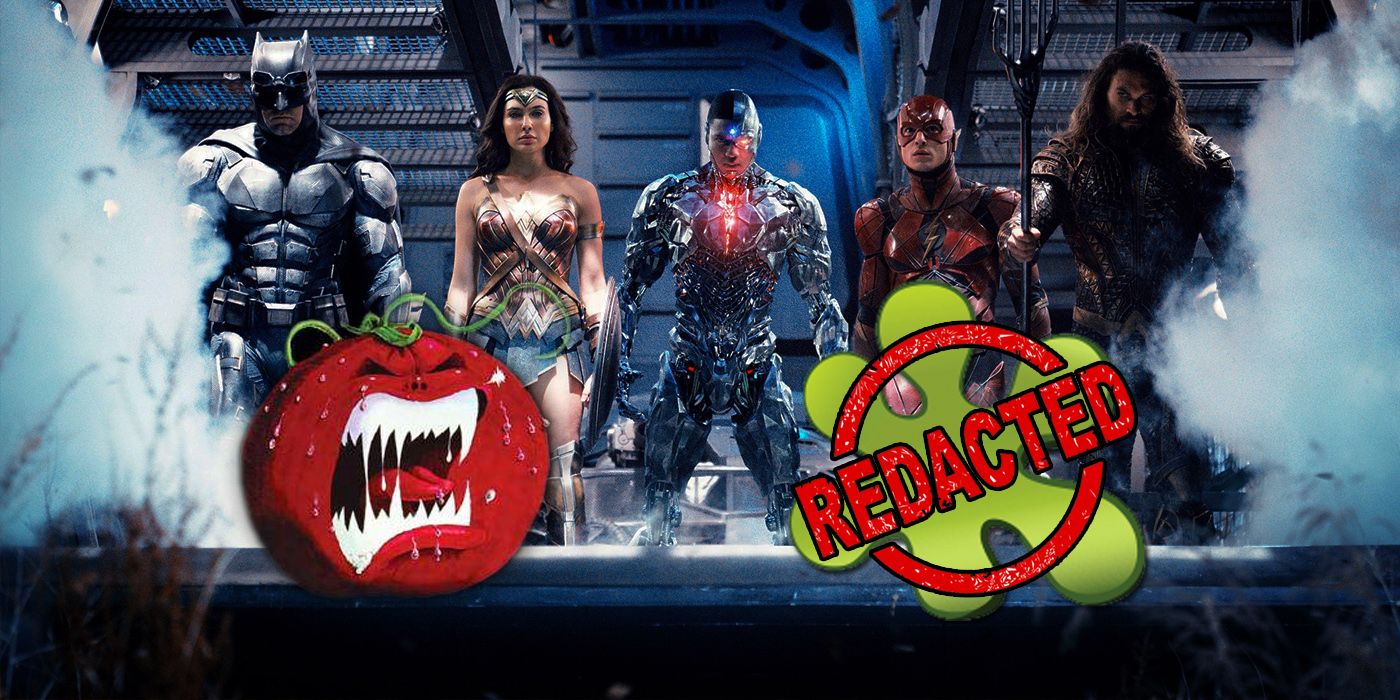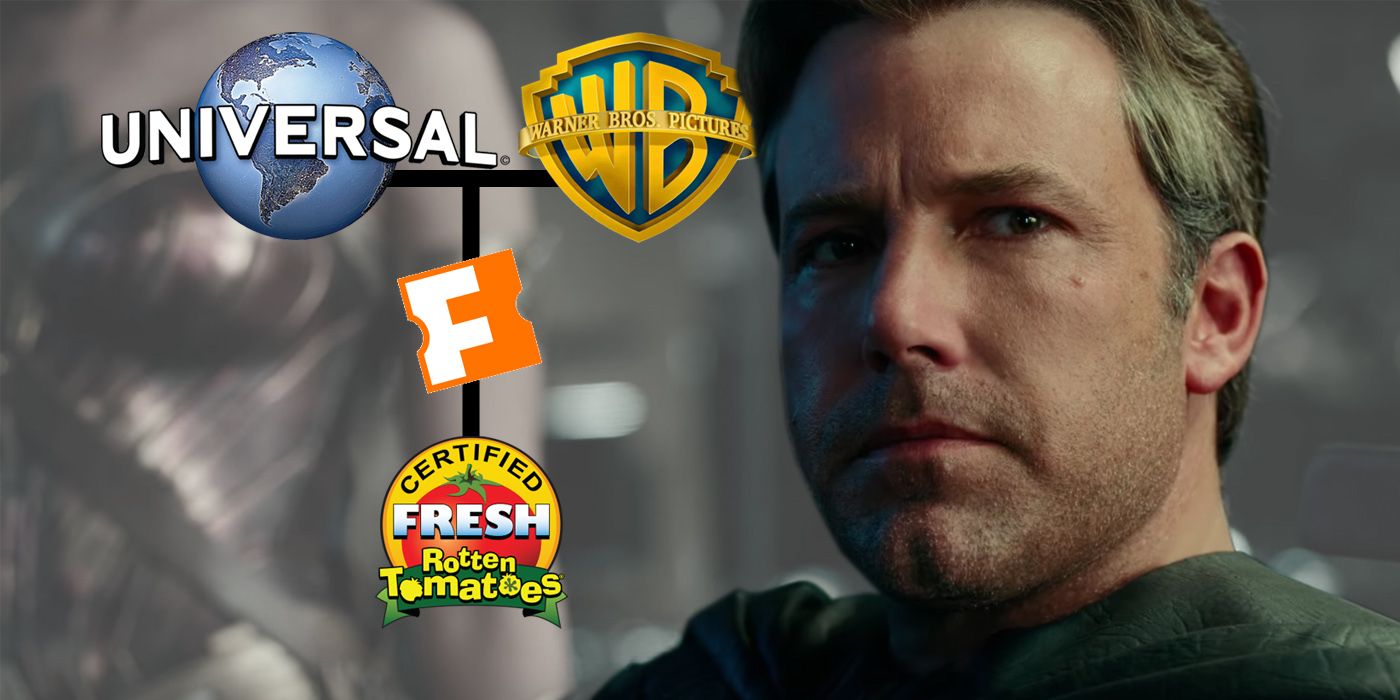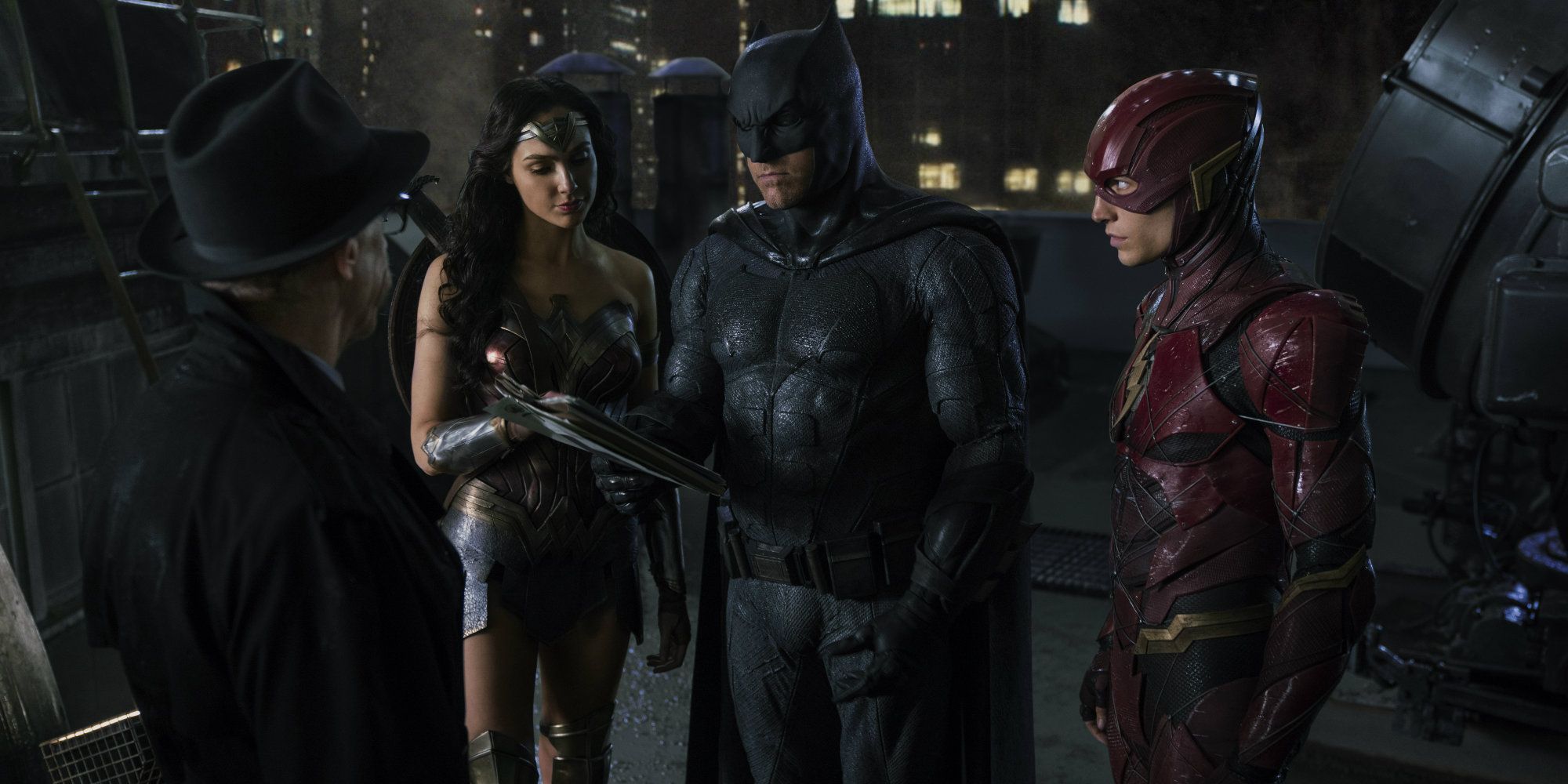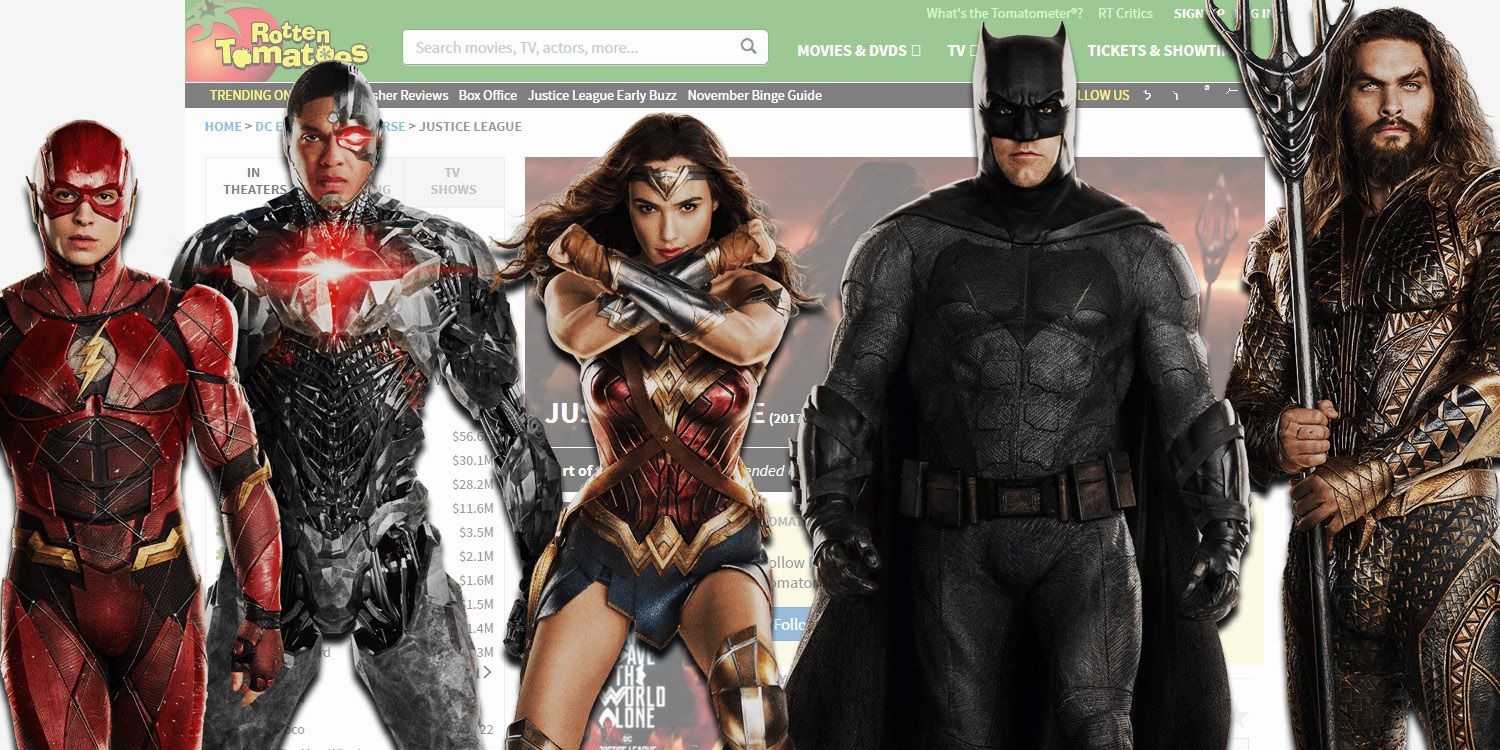Let's get this out of the way first: no, Rotten Tomatoes is not everything wrong with film criticism, nor is it the malevolent tool that's killing Hollywood. The root of all evils in the entertainment industry is not a review aggregate site, and everyone who places immense levels of importance on whether or not their favorite film is certified fresh needs to calm down. Rotten Tomatoes, like reviews themselves, are a tool for consumers to come to their own conclusions, and a way to get a very generalized view of the ongoing conversation surrounding the release of the moment.A film being decreed "rotten" due to its aggregate score will no more or less damage its reputation than if Siskel and Ebert gave it a thumbs down. This conversation will continue for some time, and we may never fully quantify the influence Rotten Tomatoes does or doesn't exert over film and moviegoing audiences, but it's hard to deny that something people talk about as incessantly as this is clearly having some sort of impact.
Related: No, Rotten Tomatoes Didn't Kill The 2017 Box Office
For the past year, Rotten Tomatoes has seen the harsh spotlight fall upon its practices, with studios blaming the site for flops like Baywatch, and even Martin Scorsese claiming it was a force for bad, citing the divisive responses to Darren Aronofsky's mother! as proof. It's true that the site has attracted some unsavory responses as well, as any critic who has received online harassment for being the dissenting negative review in a sea of tomatoes can testify. An unnerving amount of weight has been placed by many on that almighty rotten/fresh score, to the point where even posters and TV spots now highlight it to potential audiences in marketing, and that's something Rotten Tomatoes seem keenly aware of.
They know people want that score, so it made business sense to delay unveiling the official aggregate score to the long-awaited Justice League so they could build hype for their Facebook series, See It/Skip It. Suffice to say, the responses were not good, with some speculating that the move was done to appease Warner Bros. (the site is owned by Fandango Media, which Warner Bros. Entertainment have a 30% stake in, with the rest belonging to Comcast/NBC Universal). The show's host explained the score of 43% to viewers:
œObviously we've seen the conversations online about the Justice League Tomatometer, and we get it, you guys are passionate about this film, but we hope everyone understands, the only thing we're trying to do is add context and conversation around the Tomatometer, and not just give a number.
That's still true Rotten Tomatoes is essentially the middleman to the discussion, one who provides a general view that's easy for consumption but it's hard to make that case when they decide to hide certain scores in order to build personal hype. There's a difference between giving viewers an overview of a film's critical conversation and using that to create a spectacle for purposes of profit and branding. The Tomatometer score is their holy grail, but wielding it like this will only hurt them and exacerbate the already fiery criticisms surrounding them.
Related: Rotten Tomatoes Doesn't Impact Box Office, According to New Study
It's tough to overlook the questions of media monopoly and overreach of power that something like this opens up. Regardless of whether or not someone at Warner Bros. nudged the site they have a minority stake in to make the Justice League score a big reveal in the hopes it wouldn't affect first week sales, it's a question many will find themselves asking. As pointed out by many critics and industry journalists, this is a bad look. How can an aggregate site like Rotten Tomatoes promise editorial objectivity to the critics linked to their service when questions of transparency continue to rear their heads?
Justice League's opening weekend didn't go anywhere near as well as initially projected, with a $94M actual gross across the weekend, the worst debut for any DCEU film. For a film whose budget has been rumored to be anything between $190 - $300m and beyond, that's bad news for Warner Bros. Yet it's important to note that this probably would have happened regardless of whether the Rotten Tomatoes score was fresh or rotten. There are many other circumstances at play: many fans still feel burned by the critical bombs of Suicide Squad and Batman v Superman: Dawn of Justice; 2017 has been a disastrous time for the domestic box office across the board; Thor: Ragnarok was only released a couple of weeks ago; and superhero fatigue is inevitable. Reviews can influence potential customers but they can't force thousands of ticket sales for a blockbuster. Anything goes, particularly with the influence of the fluctuating international market, but the part Rotten Tomatoes plays in that probably won't be a major one, as much as they hoped it would be.
Rotten Tomatoes are trying to build an empire, and creating hype around the respective Tomatometer scores of the most anticipated films of the year is the cultural cache they have to play with. It's a site with good parts and bad, one that's often wildly misused by fans and dismissed by studios, but they help nobody by hiding those scores as part of a big reveal. All that does is exacerbate the problems connected to encouraging people to emotionally invest in an arbitrary number. If Rotten Tomatoes cannot ease these concerns and center their model on the thing they do best, without the frills or unnecessary drama, then fans will just go elsewhere.
While Rotten Tomatoes aren't the only game in town, they're easily the biggest and most widely accepted leaders in the world of review aggregate collating. The sheer expanse of their site and its easy to swallow vernacular of rotten versus fresh makes it an easy sell for audiences, although its weaknesses are obvious, and sites like Metacritic have helped to fill the gaps left by RT. Metacritic's methodology is still a generalized approach to finding out averages, and has its faults - how do you assign a numerical value to a review which has no rating on it? - but for many users, it offers a better insight into how a film, TV series, game or album is being critically received.
Read More: Rotten Tomatoes, Metacritic, IMDb & CinemaScore Explained
So, if Rotten Tomatoes are delaying the reveal of a score, users can just go to Metacritic and see what's happening. Worse still for Rotten Tomatoes, if questions continue to arise over their business model and yet they keep using their scores for big reveals on their Facebook show, other sites will create their own scores to fill the gap, as we did for Justice League. This could turn into a new market for review aggregate reporting in pop culture journalism if Rotten Tomatoes' editorializing approach continues to turn off readers. What's to stop every movie site doing the same, and maybe even improving on the old model?
Major studios have not been quiet on their distaste for Rotten Tomatoes, as misguided as that criticism often is (Baywatch didn't flop domestically because of Rotten Tomatoes; it just wasn't a very good movie). Many of them may not have controlling stakes in the site like Comcast and Warner Bros. but there's nothing to stop them from adding a coda to those review embargoes that demands a delay to the Rotten Tomatoes score being unveiled. Conversely, if they think they have a hit, a distributor is unlikely to approve of RT holding that back (look at Marvel's incredibly long-lead releases). Further, that's not something audiences will heartily embrace. Even those who rely on the site to help them make informed decisions about which film to see this weekend probably won't wait around and tune in regularly to a Facebook series to get the news. One of the great markers of sites like Rotten Tomatoes and Metacritic is convenience, something you don't really get with a series on social media.
-
As of the writing of this piece, Justice League's Rotten Tomatoes score has settled on 41%. This week's biggest release at the domestic box office, Pixar's Coco, currently has 95%, certified fresh, and this wasn't held back by the site for their show. Yet neither of these numbers will greatly impact the profits of their respective films; it's bigger than that. What Rotten Tomatoes is good at is providing audiences with details to make informed choices. If they continue to twist that into an editorializing form of branding, it won't hurt audiences as much as it will hurt themselves.





